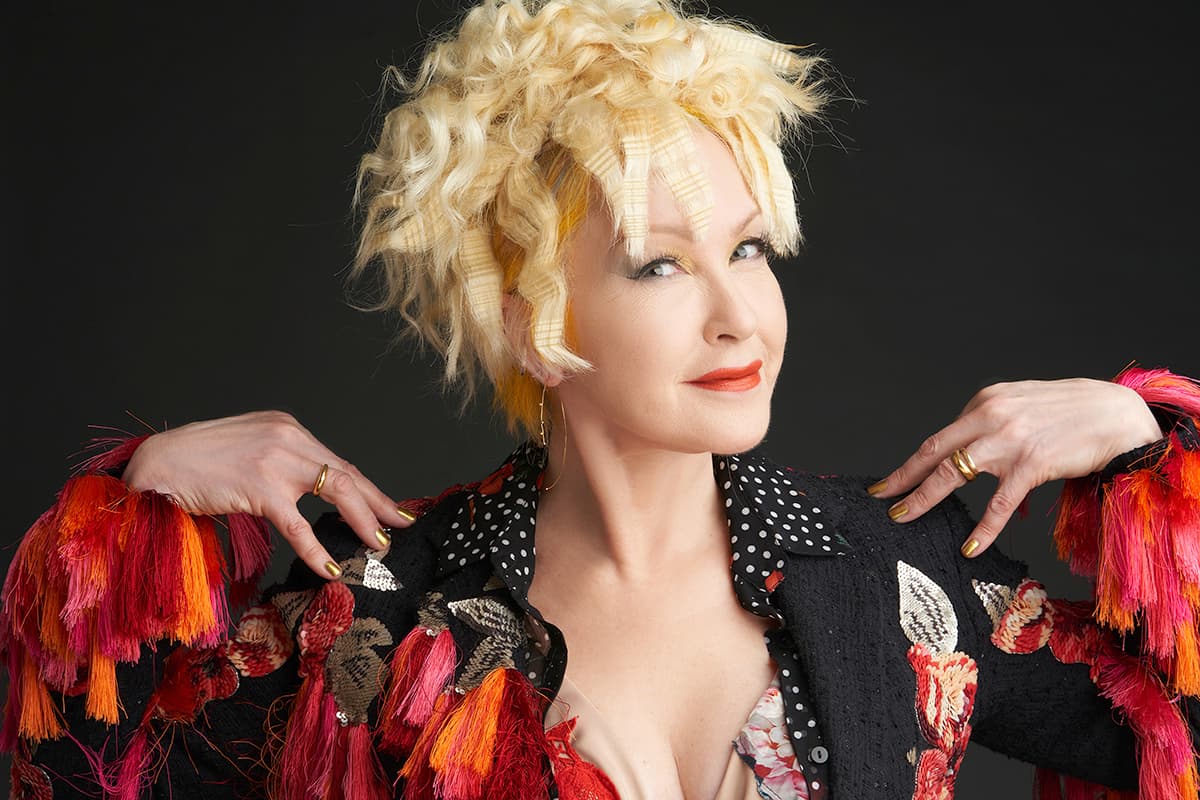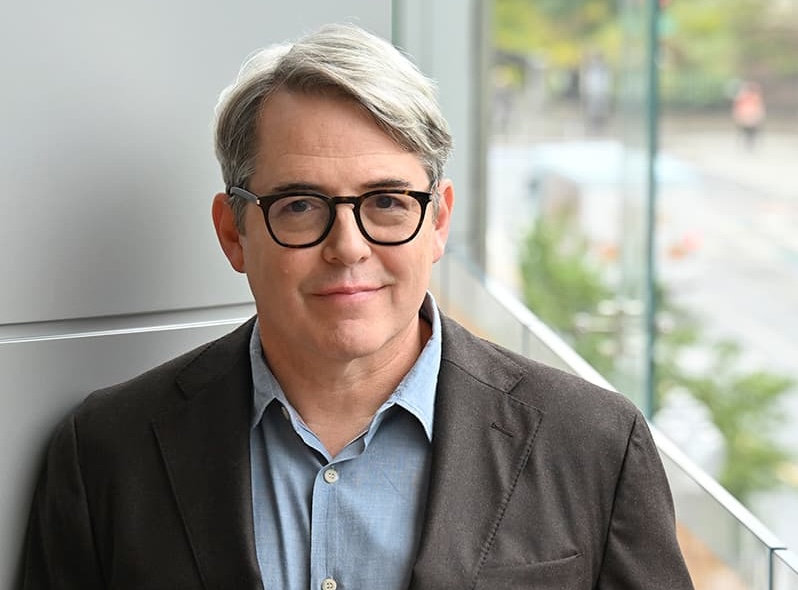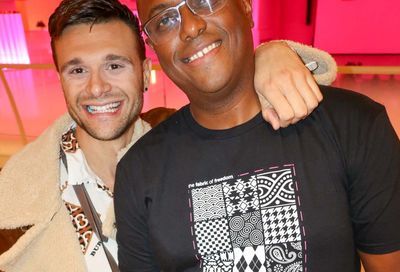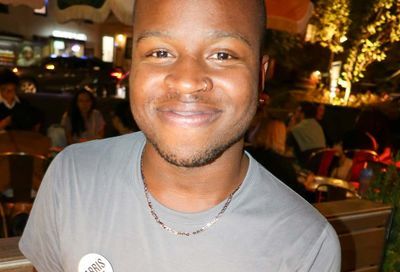Rupert Everett on “The Happy Prince,” true love, gay martyrs, and his advice for Theresa May
It took ten years for Rupert Everett to bring his magnificent Oscar Wilde opus, "The Happy Prince," to the screen. It was worth the wait.

Rupert Everett is a perfect gentleman. Whether offering his interviewer a freshly poured glass of sparkling water, or politely deflecting questions about a notorious costar — “I don’t talk about Madonna, honestly. Sorry.” — he’s never less than warm and gracious.
In person, Everett measures up most favorably to his public persona as the dashing leading man from films like Another Country, My Best Friend’s Wedding, and the acclaimed Oscar Wilde adaptation The Ideal Husband. A hale, handsome 59-year old, Everett is a stark contrast to the dilapidated version of Wilde that he portrays in The Happy Prince, his impressive debut as a feature film director and screenwriter.
Living up to his lofty reputation, or living down his precipitous fall from grace, becomes a life-or-death struggle for Wilde in the film, a bittersweet account of the British writer’s post-prison life after serving a two-year sentence for the “gross indecency” of committing homosexual acts. Everett, who brought to the role a strong familiarity with Wilde’s work and life and his own decades of celebrity as a gay iconoclast, is captivating as the absinthe-soaked exile.
The film relates the artist’s attempt at a second act with an empathy that begs the question of just how much the actor-turned-filmmaker sees of himself in Oscar Wilde. Everett admits he and Wilde do share similarities.
“Well, up to a point,” he says. “I don’t have quite as sophisticated a self-destruct button as he does, but I think we do have lots of things in common. Not in terms of his genius, because I don’t feel on any par with that, and also not really in terms of his flamboyance, either. I’ve looked at him really because he’s an inspiration to me and I think in my long and tangled career in negotiating a bid for world denomination, which is what all young actors do — you always look at other characters in history and see how they’ve done. He’s always been an inspiration to me, rather than an identification.”
A major point of inspiration for Everett’s telling of the story is the film’s depiction of the many loves of Wilde. The Happy Prince includes both Wilde’s beloved but estranged wife, Constance, portrayed by Emily Watson, and his arrogant young lover Lord Alfred “Bosie” Douglas, who was at the center of the scandal that led to Wilde’s ruin. Bosie, played by erstwhile Merlin star Colin Morgan, is famously remembered as the inamorato who inspired Wilde’s prison love letter De Profundis.
But Everett’s film brings into heartrending focus another great love whom Wilde never immortalized with passionate prose: Robbie Ross. A name that’s been mostly forgotten to history, Ross, portrayed by Edwin Thomas, labored tirelessly as Wilde’s friend and literary executor to preserve the legacy of the disgraced genius.
“The real love affair is between Robbie Ross and Wilde, because Robbie Ross adored Wilde unconditionally,” Everett says. “Actually, in the end, Wilde adored Robbie and wanted to be with him. He only realized too late.”
Robbie’s dedication ensured that Wilde’s work would see a second act. And reflecting the truth of their relationship largely underscored Everett’s second act behind the camera.
“I think in one sense, the film is definitely about what is real love and what isn’t,” he says. “Because Wilde deals so much about love, it’s curious that his idea of the great love really wasn’t it, and he was unconscious of what his own great love might have been.”

METRO WEEKLY: In many ways, Oscar Wilde’s journey in the movie seems comparable to a post-scandal comeback that we might see today. How deliberate was that?
RUPERT EVERETT: Well, when I wrote the script, none of those scandals had happened, so it’s totally by chance.
MW: As far as his comeback was concerned, his reputation was ruined by his conviction for gross indecency. But more than a century after his death, Wilde was pardoned along with thousands of others who’d been convicted for gross indecency crimes. What good is a posthumous pardon?
EVERETT: I think none, because the word pardon is as rude as the crime, because we’ve agreed that it’s not a crime to be homosexual, so a pardon is absolutely not what’s needed. An apology is maybe good enough for us, but not a pardon.
MW: We saw in Canada that there was an apology from the Prime Minister for past discrimination against LGBTQ people.
EVERETT: And in Ireland, too.
MW: Do you imagine anything like that in the UK?
EVERETT: In the UK? They’re in too much trouble at the moment to be able to think of that kind of thing. No, I suggested it to Theresa May, as a matter of fact. I thought it’d be rather a good thing for her, with her present problems, to deflect and she could have done a little sideline apologizing to all the people. I made a documentary last year [50 Shades of Gay], because we’ve had 50 years of gay legality as of last year, the year before last. I met tons of people who’d been penalized under that law. It’s just amazingly shocking to see how many lives were just torn apart by this law.
MW: And the things that they can’t recover.
EVERETT: Well, one guy I had met had been cajoled by his Commanding Officer in the Navy to give names of people. They said to him, “If you give the names, everything will be fine.” He gave the name of this other soldier who was married, who then shot himself straight after he’d been called to see his Commanding Officer. So there’s a lot of tragedy around it, real tragedy. So the pardon is peculiar. Typically English, though.
MW: Wilde’s acts today would not be considered criminal. Does that make him a martyr for the gay rights movement?
EVERETT: I think he’s the Christ figure. For me personally, that’s what he is. I think that because the gay movement, the gay liberation movement, really started with Wilde’s death. Homosexuality as a word started to be used with Wilde’s death. That means people were talking about sexuality for the first time. Women, for the very first time, talking about anything like this. He realized that he was going to be the martyr for the gay movement. He actually said at one point, “The road is going to be long and smeared with the blood of martyrs,” and it has been, and it still will be. But it’s remarkable, really, when you think about it, how far we’ve come. Even though everybody might feel very down in the dumps today, we still have come a long way. It’s very exciting.
MW: In this story, Wilde is searching for redemption, but he seems not exactly willing to change in order to earn it.
EVERETT: I don’t know that he’s searching for redemption. I think he’s beyond redemption, really. I think he’s just living in the gutter and looking at the stars. There’s a great Wilde quote, “We’re all in the gutter, but some of us are looking at the stars.” I think that line encapsulates my film in a way. My take on Wilde is when he came out of prison, he did think he was going to be able to re-engage with the world. But I think the redemptive moment passes him by because, along with the desire for redemption, he has a kind of self-destructive thing that is absolutely fatal. He has a destiny, a date, with that gutter, I think, right through his life somehow and he’s going to get to it subconsciously, whatever he has to do.
I know that sounds like something you read in books and it’s not really realistic in terms of our characters, but actually, if you look at all of us, that’s one of the weird things about human beings is a self-destructive quality, but most of us have perimeters beyond which we can’t go. The thing about Wilde was, for some reason, he didn’t have any of those. He just kind of threw himself over the edge.
MW: What do you think he was after when he got out of prison? He didn’t think he was going to live happily ever after with Bosie.
EVERETT: No, I think out of prison he wanted rehabilitation and work. He’d written about various great plays that he was going to write. All of them sounded quite dull, actually. They were all about more biblical stuff. I think he thought rehabilitation was possible. What happened straight out of prison was he hadn’t counted on the English being everywhere. As soon as he got to [France], he was victimized and abused by the English. He was constantly being asked to leave restaurants by English people and all these things happened. So he realized very quickly that life in exile was going to be another kind of imprisonment.
MW: He claims in the film to love his wife and Bosie and Robbie. Do you believe he believed that he loved them all?
EVERETT: Well, my version of him loves Robbie because the story I really wanted to tell was the difference between a historical, great love affair and the reality behind history, which is the real love affair.
MW: Did he and Robbie have an intimate relationship?
EVERETT: Yeah. Robbie was the first man, allegedly, that Wilde ever had sex with.
MW: Allegedly?
EVERETT: Well, they both agreed that that is true. I’ve said, “Yeah, allegedly,” but then you think it was a different world, really, and Wilde, he was so keen to be something when he first came to England that quite possibly he didn’t have gay sex. I think it’s possible. They both say it, and Robbie wasn’t a liar. Wilde was a liar, but Robbie wasn’t a liar. I think something about Wilde did get awakened at a certain point after his marriage.
MW: Was it more challenging to try to embody Wilde as a person or to try to write in his voice?
EVERETT: I think all of it came together. What was great for me acting was I was writing the role myself, so I really tailor-made it for myself, and as I wrote it, I was doing it. It made the acting, when it came to it, much easier because it was almost like, by that point, it had become me. Quite often you give actors scenes and they get to a part and they say, “Oh, well I don’t know how this bit goes or how to emotionally understand this bit.” I had written it with that kind of plumbing and electric wiring already built in. That, I think, made it a lot easier for me.
MW: Who do you turn to, as an actor, when you are confused and you’re also the director?
EVERETT: You have to be careful not to turn to too many people because everybody has a view that probably, if you gave them a couple of drinks, would contrast completely with your own. During the making of the film, I never asked anyone their opinion, really. I think you can’t, because it’s too easy to then get inundated with everyone’s view. Already, you’re like a chicken — an unpopular chicken — in a chicken run. Everyone’s pecking you to death with problems. The last thing you need on top of that is to open yourself up to a lot of people’s views. And really, you have to live and die by your own sword. That was my feeling anyway.

MW: Is that something you’ve learned along the way or did you catch up with that really quickly on set?
EVERETT: I’ve worked in several movies that the directors were kind of hired hands. The particular one that I remember well was a film called Inspector Gadget when the director was just this poor guy. He was just browbeaten by a kind of iCloud of executives. He might have had an idea and everyone would have a thousand reasons why it couldn’t work out. I remember that very vividly because it was a horrible situation for him and he was a good director, too. But the strongest directors I’ve known have been very clear about what they wanted. I was very clear, finally, after the 10 years of waiting, about how I wanted to approach the film.
MW: Of the many amazing directors that you’ve worked with or even the ones, I guess, who were guns for hire, were the methods of any particular director helpful to you going into this?
EVERETT: Certainly in terms of directing actors, I think the best directors are ones who keep a distance from the actors and they’re not micromanagers. For me, in terms of being an actor and for most actors I know, the directors who micromanage are hard to work with. They make you feel bad. What you want to make an actor feel is he’s invented everything himself and then he kind of blossoms. If you cut him off before he’s ever come up with anything, or she, she’ll start on a defensive note. The best thing, really, for a set is for everyone to be having a laugh. That was my mantra with a lot of people. We said we were going to have fun. I didn’t really manage to have fun because I was too stressed out, but everyone else did have fun, more or less. And just to enjoy each other, to run a set where everyone enjoys each other is probably the most productive.
MW: Speaking of fun on the set, Emily Watson as Constance Wilde has probably not a single happy scene. But she’s so wonderful in this film. How did you cast her?
EVERETT: I’d been doing a film with her when I started writing the script. So when I wrote the script, I was thinking, “Oh god, I want Emily to be my wife.” And I adore her. So right from the beginning, I wanted her to be in the film. Her son is also one of our sons in the film too, so I managed to get her even more motivated to be in it. She was amazing to work with.
MW: She’s one of those can-do-no-wrong kind of actors.
EVERETT: I think so too. She’s never done anything bad, really.
MW: So, about Robbie and Bosie, the film stresses this bitter dichotomy between the two. How much of that is fact or fiction?
EVERETT: It’s all facts, even down to their row at Wilde’s grave site. I don’t know what happened in the row because no one has ever said, except for the fact that Bosie, rather like in Absolutely Fabulous, nearly fell into the grave. It just seemed like a wonderful opportunity. Because the film is about the two of them, in a way, and their battle for supremacy over Oscar. It’s all, more or less, true.
MW: You talked about the film taking 10 years to make from when you wrote the script. How did it eventually come to be made?
EVERETT: I think tenacity in the end. I do think now tenacity’s the only thing that really counts, tenacity and luck. I think if you continue with something long enough, something will happen. My tragedy, I think, has been being flaky all the way through my life until this, for some reason. I don’t know what made me so tenacious. Perhaps because it happened to me as I was entering the deep winter of middle age and I was in between careers, young man or old man, and not getting it together suddenly felt to me like a life and death thing. I’d been at it for five or six years at one point and I thought, “God, if it doesn’t happen now, who am I?” I think that geared me on somehow. It’s always difficult getting independent films together because the market’s completely disappeared and raising the money is virtually impossible. It’s as random as a sperm hitting an egg, really. I don’t know how anyone gets it together because everything about it, especially in the UK, there’s only three sources of money. If all of them say no to you, which they did to me in the first two years, you don’t really know where to go.
MW: Was any of that rejection relative to the fact that it’s Oscar Wilde?
EVERETT: No, I think the rejection was more about me than about Oscar Wilde. Oscar Wilde’s probably a good subject, in a way. He’s a name that, even if you don’t know all about him, you know something about him. I don’t know what it was, really. They say in Los Angeles, “No one wanted to get into the Rupert Everett business” at that point.
MW: And what excites you about acting right now?
EVERETT: Oh, I love acting. Everything excites me about acting — but good parts. The thing is, what goaded me into writing my part, this part, was just the things that I was getting offered were not that exciting, and it’s starting a career that’s phoning things in. That’s quite depressing after a career where you’ve been lucky and you’ve done interesting things. I think acting is a wonderful gift if it comes along. It’s really fun and you get to learn so many things all the way through it. It’s difficult to relinquish.
MW: Do you think you’ll direct again?
EVERETT: I’d like to, yeah.
MW: Do you have something in mind?
EVERETT: I’ve got something up my sleeve.
MW: Another script that you would write?
EVERETT: I’ve written, yeah. I’ve done it already.
MW: I want to ask you more, but I feel like you don’t want to say.
EVERETT: It’s about disco in the 1970s in Paris. It’s a disco love affair.
MW: Would you act in it?
EVERETT: I’d go back to a small part, but obviously I’m not going to be on the disco floor.
MW: It depends how your disco moves are holding up. Back to a question about reputation, I had the pleasure last year of interviewing James Ivory. Before speaking to him, I was warned that he had just torn another interviewer apart. So it was, “Be really prepared and anticipate the worst.” Then I got on the phone and —
EVERETT: He was lovely.
MW: He was a teddy bear. Have you met or worked with anyone whose reputation preceded them, but they turned out to be absolutely lovely?
EVERETT: [Laughs.] Myself, to start with. Yeah, lots of people have reputations of being absolutely lovely, and end up being monsters as well. I think it’s a two-way thing.
MW: We don’t hear about those so much.
EVERETT: No, not really. But I’ve never worked with one of those monsters who… Oh, have I? What was that one amazing piece of video that came out of the actor shouting at the cinematographer? Who was that, the English actor?
MW: Christian Bale?
EVERETT: Christian Bale. I’ve never had that. I love it when other people make scenes because it makes you feel like a little saint.
MW: Do you just go and sit and watch?
EVERETT: Well, I would watch, yeah. I feel like you get icy calm when other people get hysterical. It’s a wonderful feeling.
MW: Whose writing, if anyone’s, stimulates you like Oscar Wilde’s?
EVERETT: At the moment, I’m reading the history of the British Empire [The Pax Britannica Trilogy] by James Morris. I don’t know that James Morris means anything to you, but he became one of the first English transgender women, who then called herself Jan Morris. She’s a very, very famous journalist. She wrote a famous book as Jan Morris called Conundrum, which was her story of her sex change. She’s an amazing woman. I read in an article about her, just a few weeks ago, she was talking about everything and I thought, “Oh, I must start reading,” because she wrote this huge three-volume book about the rise and fall of the British Empire. So I’m reading that at the moment. It’s very inspiring. She’s a wonderful, wonderful writer.
I mostly like older writers, dead ones. I don’t know why. I feel that living through today is enough, rather than reading about it. I’m just fascinated about how people, without what we have, lived. It just seems so impossible. When you think of all the things we have, all the addictions like running water and toilets and endless soap. I’m always fascinated how sex must have been in the 18th century because you couldn’t have done anything like snog because your teeth would probably come out. I’m fascinated by the 19th century, and the 18th century, and the 20th century, and the wars, the ’60s, ’70s. I love the ’70s.
MW: For the script that you’re developing now, what’s different about the ’70s that is fascinating to you?
EVERETT: Because it was so much more rough and tumble than things are now. It was right on the dawn or after the dawn of the sexual revolution and the beginning of act two of the feminist movement, really — burning the bras and all that kind of stuff. There was a raunchiness, and a sense of anything going, and an innocence, and an excitement that seems to have been… I don’t know, I find that we’ve moved into such an age of Puritanism that it feels less exciting. I like the danger of the 1970s, the danger of New York, all those things. It was exciting.
MW: To hear you describe it, it sounds like romance is missing.
EVERETT: Well, funnily enough, I said that I thought this Oscar Wilde story was romantic, the idea of a movie star on the skids landing in the gutter and cadging drinks off everybody and scouring the neighborhood for rich people to fleece and smelling of piss and sweat and cigarettes. I said to someone this morning, “For me, that’s romance.” Obviously, it’s a different kind of romance, but it’s a shadowy, exciting, kind of epic world, and the 1970s was like that too, and in one sense, more innocent than the Puritanical world we have now, which is quite plodding, I find.
MW: On a more positive note, what redeems right now versus 40 years ago?
EVERETT: Well, we’ll see what happens in the midterm elections. At the moment, if no one votes, nothing redeems us, I don’t think. I think if the Millennials don’t vote in this election, then I don’t know what will happen.
But no, we’re living in an amazing time, which is why I’m very keen to keep engaged in my business because it’s an exciting business to be in. I think even though I’m older now, the older angle is valuable because the young angle is completely without history, there’s no context in the new virtual world. I think my main criticism of the virtual world is it’s without context. The context is six months ago. An old movie is Scream 2, not even Scream. That is a completely different context to any other generation that they’ve had. I think history is the thing that’s missing now because we need context. Context is vital because we might be getting our knickers in a twist about something that, if we saw it within a context, we say, “Oh actually, it’s something rather different.” There’s a current going and we’re on it and things might not be quite what we think of them if our historical context is only a year, or the last administration.
MW: Has there ever been a love letter as profound as Wilde’s De Profundis?
EVERETT: And as far-reaching? Because I don’t know whether you know how De Profundis eventually came to light, because Alfred [“Bosie”] Douglas had no idea it had been written. In fact, one version has him receiving it, reading one line, and tearing it up. The other version has him not receiving it at all. But when he did receive it, it was only in about 1908, nine years after Wilde had died, and he had gone through this journey. He’d become a homophobe, a denier of his relationship with Oscar Wilde, very Catholic, married. When this letter came out, he was absolutely furious. Between him and Robbie Ross, that fight on the grave site, that went on and on. It goes worse and worse and worse. It really killed Robbie Ross, actually, in the end. He died of a heart attack in 1918, I think it was. But Alfred Douglas took him to court, outed him as a homosexual. All these things that had happened to Wilde were done to Robbie Ross by Alfred Douglas because of Robbie Ross bringing out the letter, De Profundis. It’s quite an extraordinary life that letter’s had.
MW: My husband was telling me that his mother had a copy of it that she read to him and his siblings, saying, “If you didn’t know this were written from a man to another man, you would have no idea. It’s a love story.”
EVERETT: Good, that’s amazing. That’s an amazing mother.
MW: Did you have amazing parents?
EVERETT: I did, but they were kind of pre-Freudian, military, naval. For me, my mum read me The Happy Prince really not understanding anything about Oscar Wilde because she was from that military background. She wouldn’t have known. But that was, for me, an eye-opening experience at the age of six to hear that story because we didn’t talk, we didn’t live in those kind of terms where people say, “I love you” like everyone does now all the time. Not that we didn’t like each other, but that word wasn’t really a word we talked about. This story, The Happy Prince, is all about love and suffering and the price paid for love and all that kind of stuff. I was thinking, “My god, I’ve been missing something here, with this military family discussing maneuvers after the second World War, something else that is going on that I’ve kind of caught on to.” And I think that story gave me the appetite to get out there and find out more, in a way.
MW: And here we are.
EVERETT: Here we are.
The Happy Prince is rated R, and opens October 19 at Landmark’s E Street Cinemas and Bethesda Row Cinemas. Visit landmarktheatres.com.

Support Metro Weekly’s Journalism
These are challenging times for news organizations. And yet it’s crucial we stay active and provide vital resources and information to both our local readers and the world. So won’t you please take a moment and consider supporting Metro Weekly with a membership? For as little as $5 a month, you can help ensure Metro Weekly magazine and MetroWeekly.com remain free, viable resources as we provide the best, most diverse, culturally-resonant LGBTQ coverage in both the D.C. region and around the world. Memberships come with exclusive perks and discounts, your own personal digital delivery of each week’s magazine (and an archive), access to our Member's Lounge when it launches this fall, and exclusive members-only items like Metro Weekly Membership Mugs and Tote Bags! Check out all our membership levels here and please join us today!

























You must be logged in to post a comment.